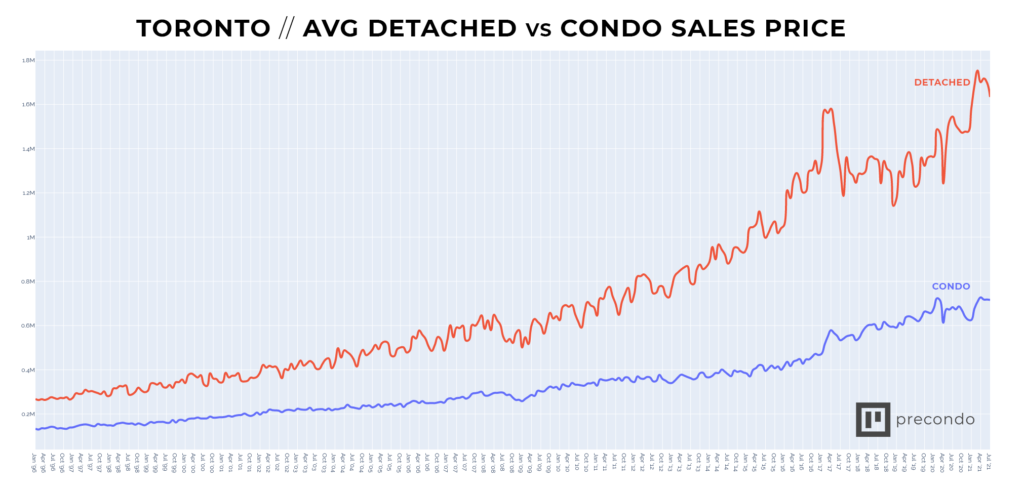
Evolving Condo Property Sales Trends: A Snapshot of Urban Living
The landscape of condo property sales is a dynamic one, offering a window into the ever-changing preferences and behaviors of urban dwellers. From emerging market trends to shifts in buyer demographics, understanding the dynamics of condo property sales provides valuable insights into the state of urban living.
Shifting Demographics in Condo Buyers
One of the key trends shaping condo property sales is the evolving demographics of buyers. Millennials, often drawn to the convenience and amenities of urban living, represent a significant segment of condo buyers. Their preferences for walkable neighborhoods, access to public transportation, and vibrant cultural scenes influence the types of condos being developed and marketed. Additionally, empty nesters and retirees seeking downsized, maintenance-free living are also driving demand for condos, particularly in urban areas close to amenities and services.
Condo Property Sales Trends Reflect Urbanization
The rise of condo property sales reflects the broader trend of urbanization, with more people choosing to live in dense, walkable urban areas. As cities continue to grow and expand, the demand for condos in central locations close to employment centers, entertainment districts, and transportation hubs remains strong. Developers are responding to this demand by building high-rise condominium towers and mixed-use developments in urban cores, offering residents a convenient, connected lifestyle.
Impact of Lifestyle Changes on Condo Sales
Changes in lifestyle preferences are also influencing condo property sales trends. As more people prioritize flexibility and convenience in their lives, condos are becoming an attractive option for both homeowners and renters. Condo developments with amenities such as fitness centers, coworking spaces, and concierge services cater to residents’ desire for a hassle-free lifestyle where everything they need is within reach. Additionally, the shift towards remote work and flexible schedules has increased interest in condos with dedicated home office spaces and communal work areas.
Sustainability and Green Living
Sustainability is becoming an increasingly important consideration for condo buyers, driving demand for environmentally-friendly and energy-efficient properties. Condo developments with green building certifications, such as LEED or ENERGY STAR, are attracting eco-conscious buyers who want to minimize their environmental footprint. Features such as energy-efficient appliances, green roofs, and electric vehicle charging stations appeal to buyers looking to live a more sustainable lifestyle.
Technology Integration in Condo Living
Technology plays a significant role in shaping the future of condo living and property sales. Smart home features, such as connected thermostats, keyless entry systems, and automated lighting, are increasingly common in new condo developments. These technologies not only enhance convenience and security for residents but also add value to properties. Additionally, developers are exploring virtual reality tours and digital marketing strategies to showcase condos to potential buyers, especially in markets where in-person viewings may be limited.
Pricing and Affordability Considerations
Pricing and affordability are important factors influencing condo property sales trends. In many urban markets, condos offer a more affordable entry point into homeownership compared to single-family homes. However, affordability challenges persist, particularly in high-demand cities where prices have risen faster than incomes. Developers are responding by offering a range of housing options, including smaller units and micro-condos, to make homeownership more accessible to a broader range of buyers.
Impact of Market Volatility
Market volatility, including fluctuations in interest rates and economic uncertainty, can have a significant impact on condo property sales. Buyers may be more hesitant to make a purchase during periods of uncertainty, leading to fluctuations in sales volume and pricing. Developers must closely monitor market conditions and adjust their strategies accordingly to remain competitive in changing market environments.
Importance of Location and Amenities
Location remains a critical factor driving condo property sales, with buyers seeking proximity to amenities, transportation options, and employment centers. Condos in walkable neighborhoods with access to parks, restaurants, and cultural attractions are highly desirable. Additionally, amenities such as fitness centers, swimming pools, and outdoor spaces can differentiate one condo development from another and influence buyers’ purchasing decisions.
The Role of Real Estate Agents
Real estate agents play a crucial role in facilitating condo property sales, guiding buyers through the purchasing process and helping them find the right property to meet their needs. Agents leverage their expertise and local market knowledge to identify opportunities, negotiate deals, and navigate complex transactions on behalf of their clients. In a competitive market, having a knowledgeable and experienced real estate agent can be invaluable for both buyers and sellers.
Evolving Condo Property Sales Strategies
In conclusion, evolving condo property sales trends offer a snapshot of urban living in flux, reflecting changing demographics, lifestyle preferences, and market dynamics. Developers, real estate agents, and buyers alike must adapt to these trends, embracing technology, sustainability, and affordability considerations to succeed in today’s condo market. By understanding the factors driving condo property sales, stakeholders can make informed decisions that shape the future of urban living.




